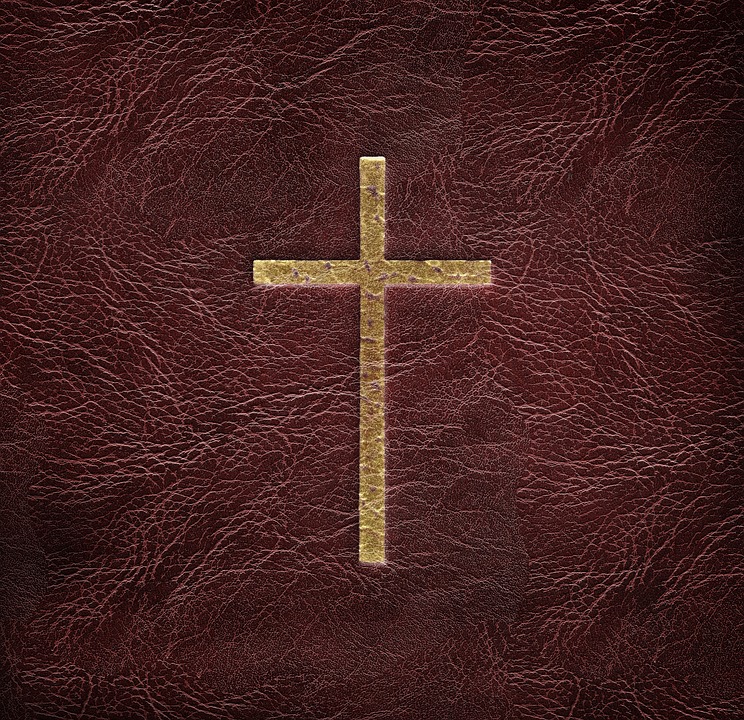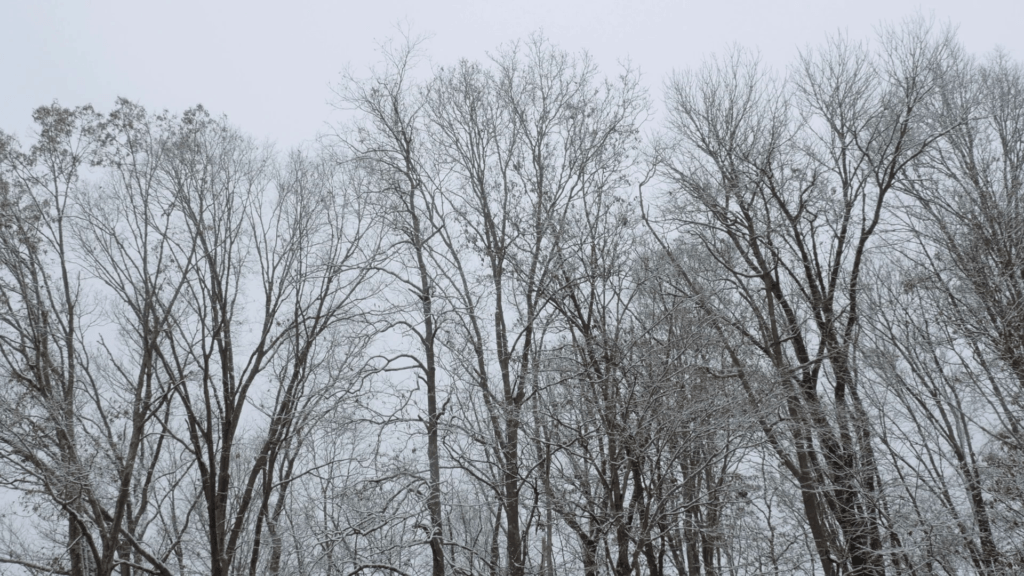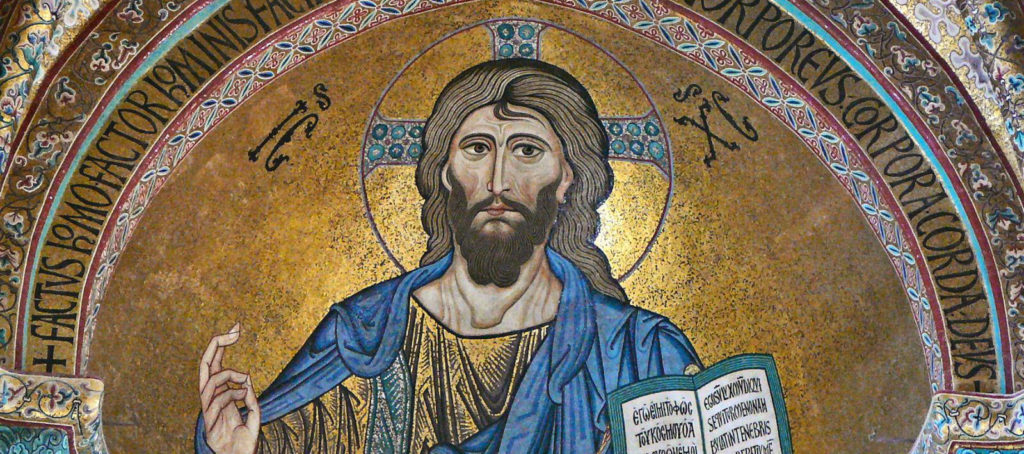
Zephaniah 3:14-20
Canticle 9, the First Song of Isaiah (Isaiah 12:2-6)
Philippians 4:4-7
Luke 3:7-18
Click here to access these readings.
It’s a good day today for lighting our pink candle, isn’t it? This morning, Helene and I bundled up the kids and ourselves and set ourselves for a cold and blistery morning, but when we got outside it felt like spring. It’s still the usual December dim, and the sky is blue with rain, but it’s warm and windy. It’s the perfect day to think about our pink Advent candle set amidst all the dark purple of the rest of the wreath.
For the color pink is a symbol of joy, hope, and expectation. There’s just one other pink day in the church year, do you know when? It’s in Lent, and it’s also towards the middle-end of the season. Again, it’s a single day of pink set deep within a penitential season. Twice a year we are asked to think about this joy in darkness. It says, I believe, something very important about joy and something very important about sorrow. It says that, no matter how much sorrow we experience in life, no matter how much hardship, we should not forget the joy of Christ. Christ is the light in the darkness, which no darkness may overcome.
But what do we mean by “joy”? What is this joy of the pink candle, the joy of the light of Christ. In Philippians, St. Paul says that we should rejoice in the Lord always, so does this mean we always have to be happy? Now, I’m a pretty optimistic, happy guy, but I would be completely exhausted if I had to be happy all the time. Back in high school, I used to have a pair of yellow sunglasses that I called “Happy Glasses.” They made everything bright and yellow and spring-like, even on grey days, and they always cheered me up. But after I wore them a while, I had to take them off and see the world for what it is. Some days, grey weather suits the mood just fine. Some days, it is good to rest. Some days, it is okay to be sad. Not every day is a roller-coaster, Paul.
But I don’t think being happy all the time is what Paul’s getting at when he says, “Rejoice in the Lord always.” Joy isn’t only about being happy or excited all the time. It certainly can be, but joy can also be quiet, it can be peaceful, and it is always healing. A perhaps silly example is when I went on a trip to Hawaii. I had been living in Japan for a year or so then, and my parents wanted to see me. We decided to meet up at the halfway point between Japan and New Jersey, which is Hawaii. Now, my plane got to Honolulu in the morning, and my family wasn’t due to land until the afternoon, so I went exploring. Or, rather, I went in search of a place to have breakfast, because I was starving.
It was, though, pretty early, and the only store open was a TGI Fridays that was serving breakfast. And, now, let me say, I love Japanese food, but there’s nothing like a good American breakfast of pancakes, bacon, and eggs. The Japanese don’t really do eggs and bacon; their traditional breakfast is rice, fish, and miso soup. And while I kinda like that as a meal, my inner American was demanding some pancakes, so I ordered the works. And it was so delicious. Everything was perfect – it was exactly what I had hoped for. And it was really so good that I started crying. And the waitress came up and asked in a hurry, “Oh, dear are you alright?” And I just nodded and said, “It’s just so good.”
C.S. Lewis, our great Anglican writer of the 20th century, wrote a lot on Joy. For him, “Joy” was the part of a thing or an experience that led the heart to God. Lewis found “Joy” in his community of friends, in a pint of beer and a pipe, but also in walking in the British countryside. And perhaps one of his greatest joys (if I can speak for him) was that, after remaining a bachelor for most of his life, he married a woman whose name was Joy. And Joy taught him more about the goodness and grace of God than he could have ever imagined. Lewis found joy, and found God, in good things like laughing with his friends and calm, peaceful moments with his wife.
Did I find God in that breakfast in Honolulu. In a way, I did. Those weren’t just eggs and bacon that I ate. It wasn’t just a tall glass of orange juice. It was home. It was a breath of air that I knew to my bones. It was soil that I had been planted in as a child. You probably know the feeling after getting home from vacation. No matter how good the vacation was, there’s something glorious in stepping back into your own home, washing off the dirt of travel, and sleeping in your own bed. And this goodness that I’m talking about – of eggs and bacon, of laughing with friends, and of CS Lewis finding a wife late in life – this stuff isn’t just good because it is comforting or feels homey. It’s good because it all reminds us that we have a True Home, one that will never fade, and that is with God in Heaven. By enjoying those eggs, I was looking to God.
Am I going to far here? Am I just exaggerating. I mean, they’re just bacon and eggs, right? It’s just laughing with some buddies, right? Yes, but we also say, every Sunday morning, that something as simple as bread and wine can be the very Body and Blood of our Lord and Savior Jesus Christ. When Paul says “Rejoice in the Lord, always, again I will say, Rejoice” he doesn’t want you to just leap up and laugh and play. He wants you to see that God is present in all the different parts of human life, in both laughter and in tears. He wants you to look at your eggs (or whatever folks ate for breakfast in his day) and say, in this I can learn of the love of God. He wants you to look to your brother and your mother, your friends, your church, and your community and see God standing with and among them. Paul wants you to have Christ so firmly planted in your heart that when you see the rising of the Sun, you smile and see the rising of Christ; or that when the Sun sets you see the rest that God gives us every day. Or that when we do something so simple as reach out, shake someone’s hand, and say to them “Peace of the Lord” we are giving to them the gift of Heaven.
Back in 2015, when Gwendolyn was born, a friend in seminary gave me a small book of meditations about parenthood. That time was exhausting, I remember, trying to figure out how to be a father, how to change diapers, and how to support Helene. In those first few weeks, there were nights when I don’t think either of us slept. But in this book, I remember one meditation that talked about the grace of simply holding a child. This small act, just sitting still with a sleeping child – my sleeping child – this alone was a grace, this alone was the love of God right here in my life.
This, for me, was a deep, deep joy. Some of you may share similar memories. Or for some of you, your joy may be louder, more exuberant. Your joy might be in a stadium in Eugene or Corvalis. Your joy might be listening to music in the car with the windows down. Your joy may be in the past, and your joy may be in the future. But whatever the case, Paul reminds us, rejoice in it. Those things you love, those things you love with a full and open heart, God is in them, for God is love. And so, says Paul, rejoice and give thanks, for the Lord is in our lives even now, filling our hearts and lifting them up to the Lord. May we praise God for ever and for ever more.




